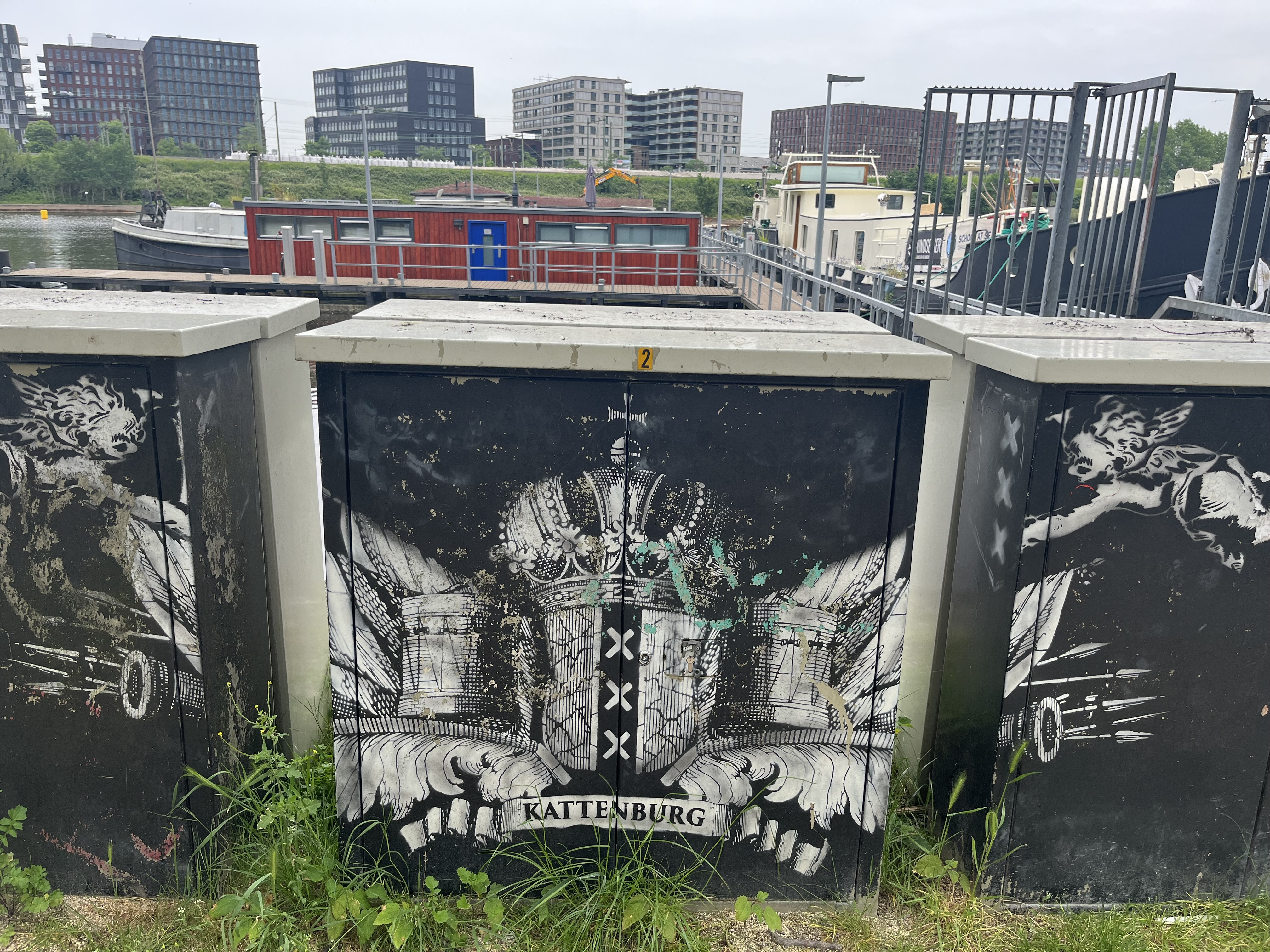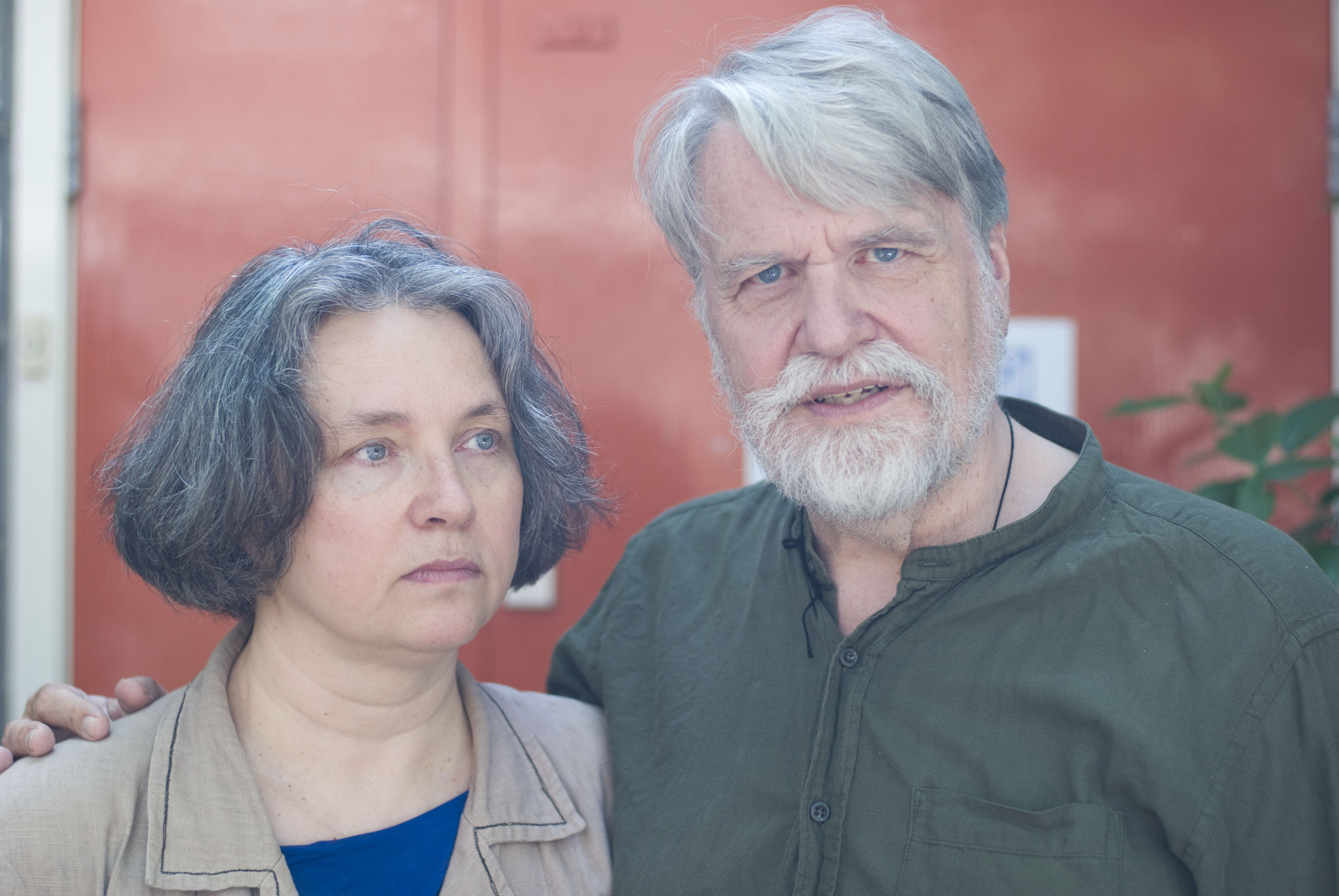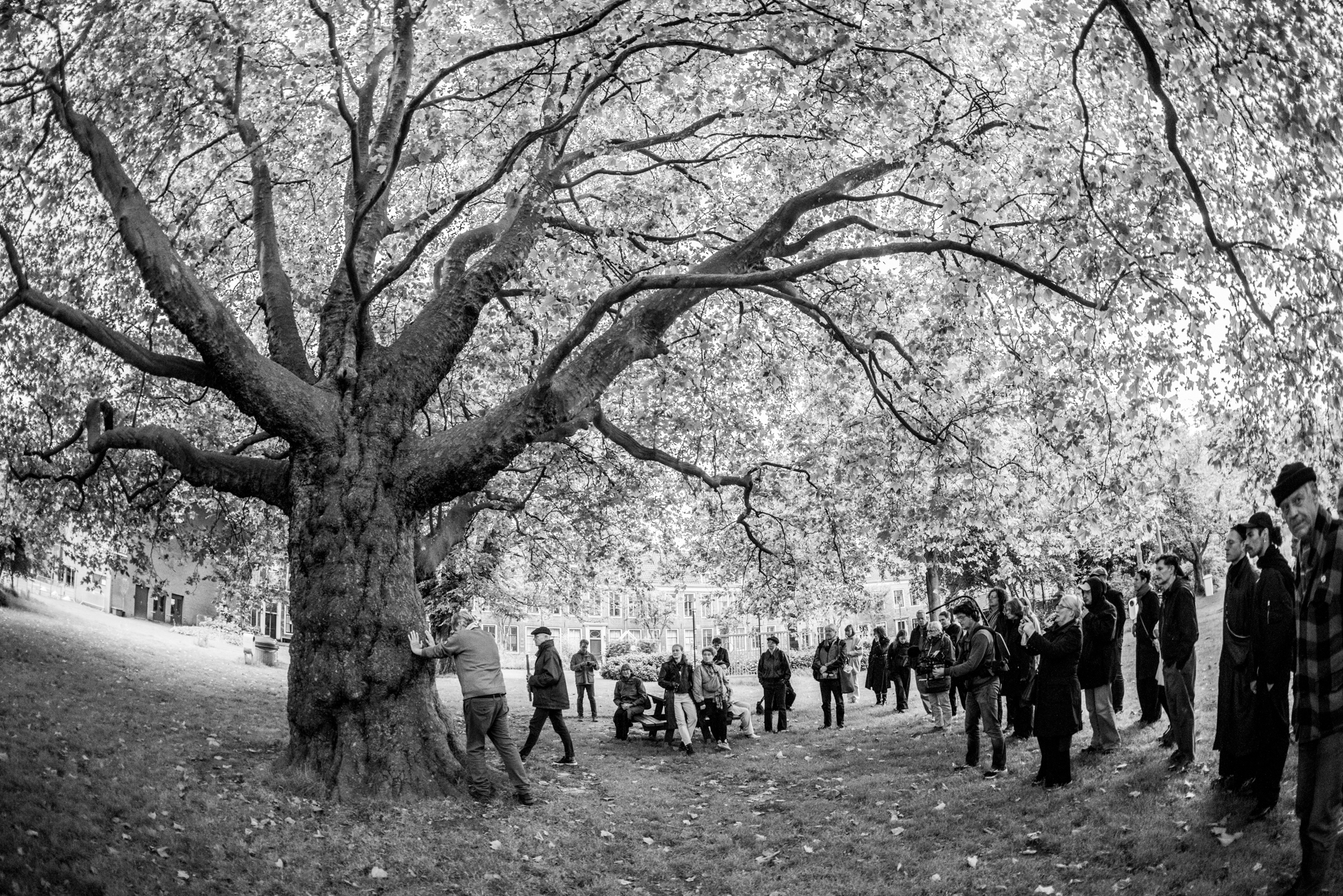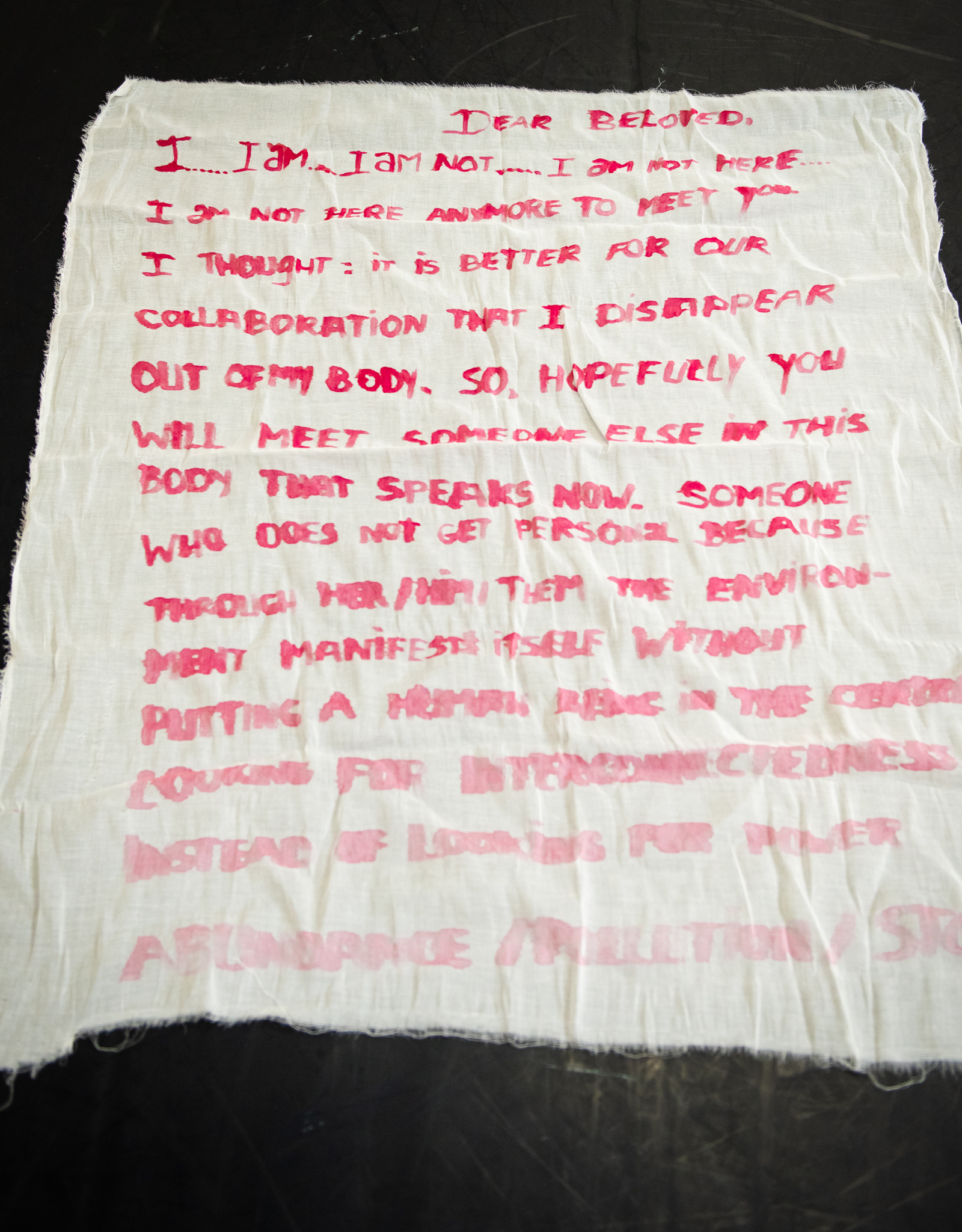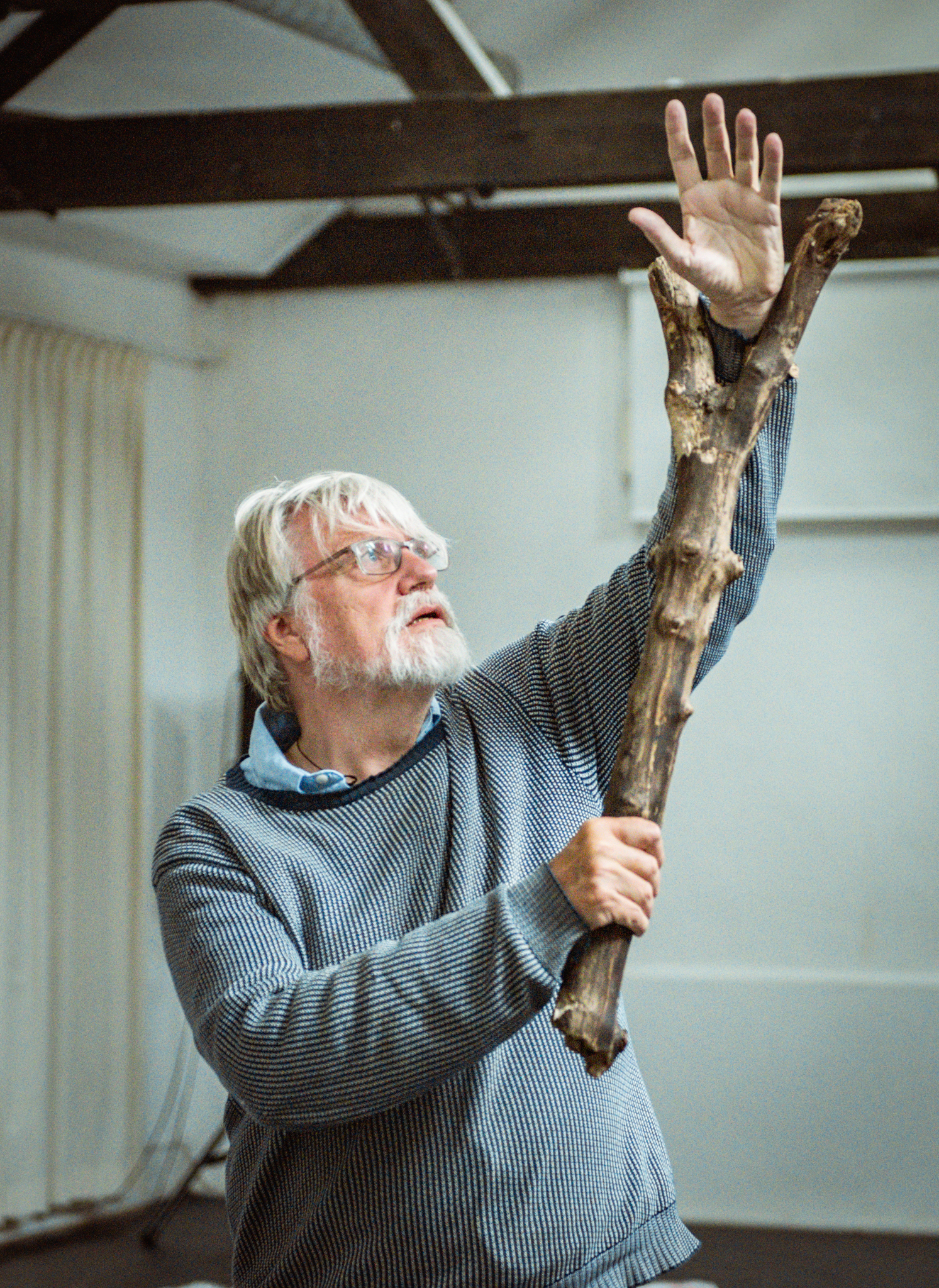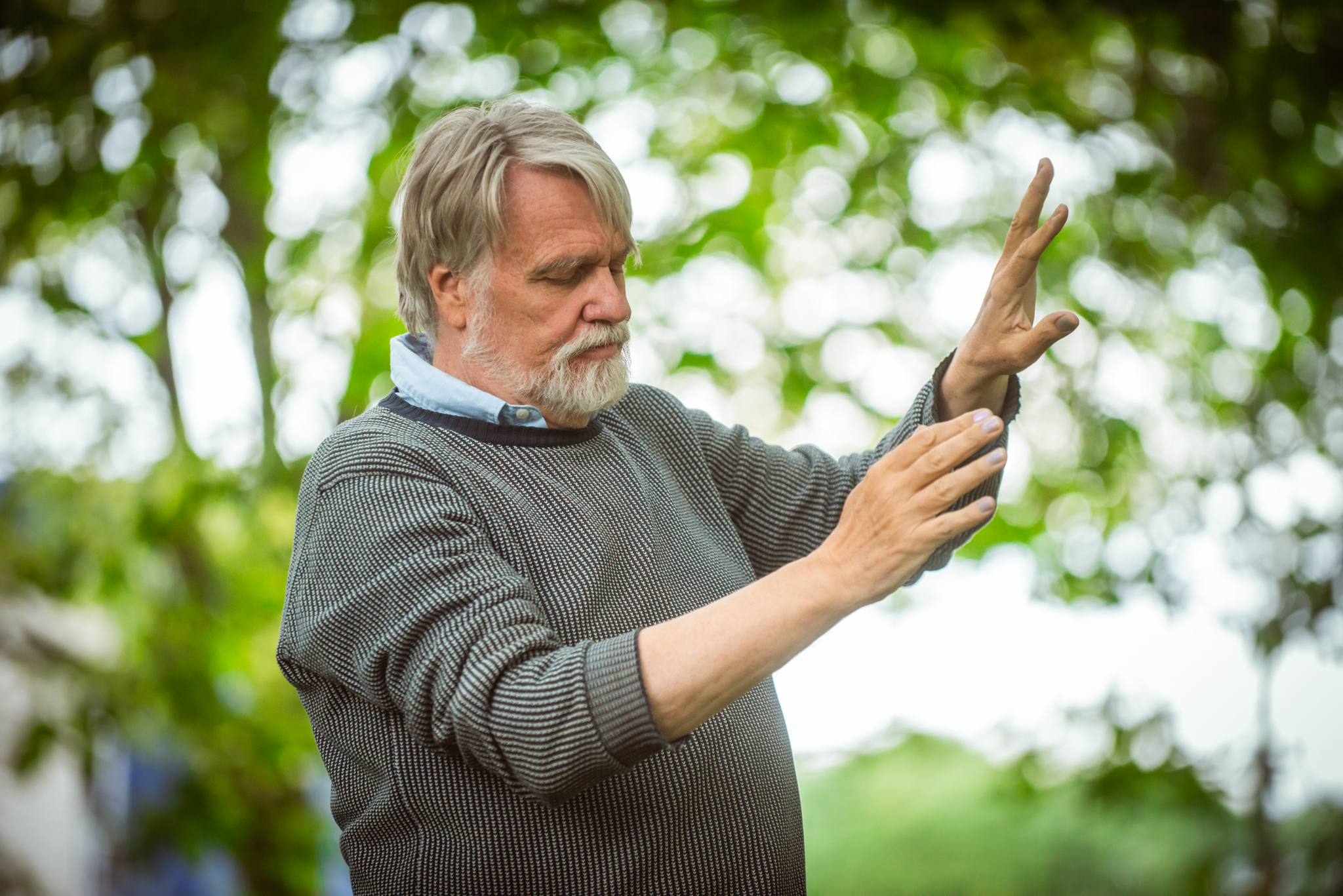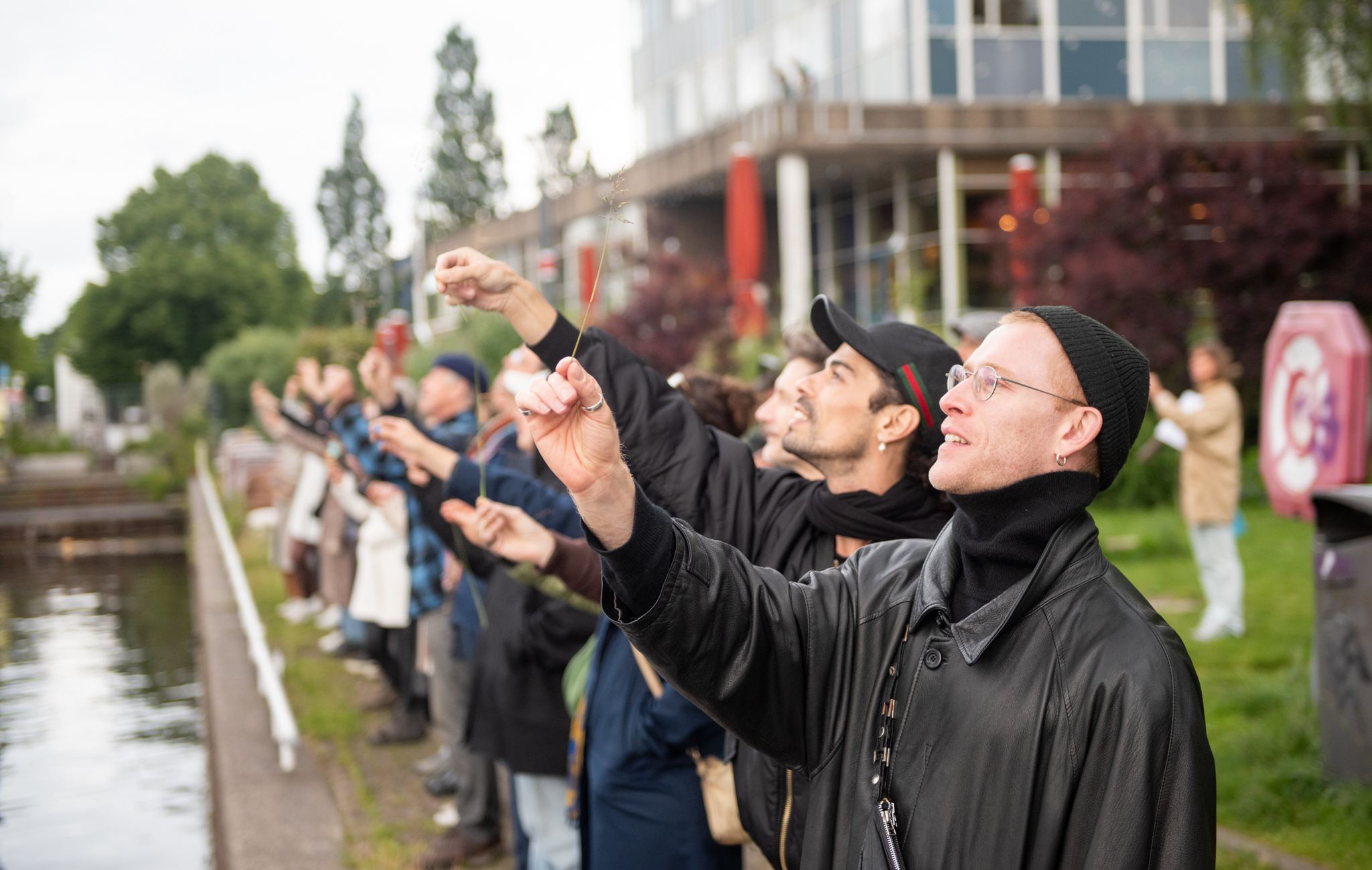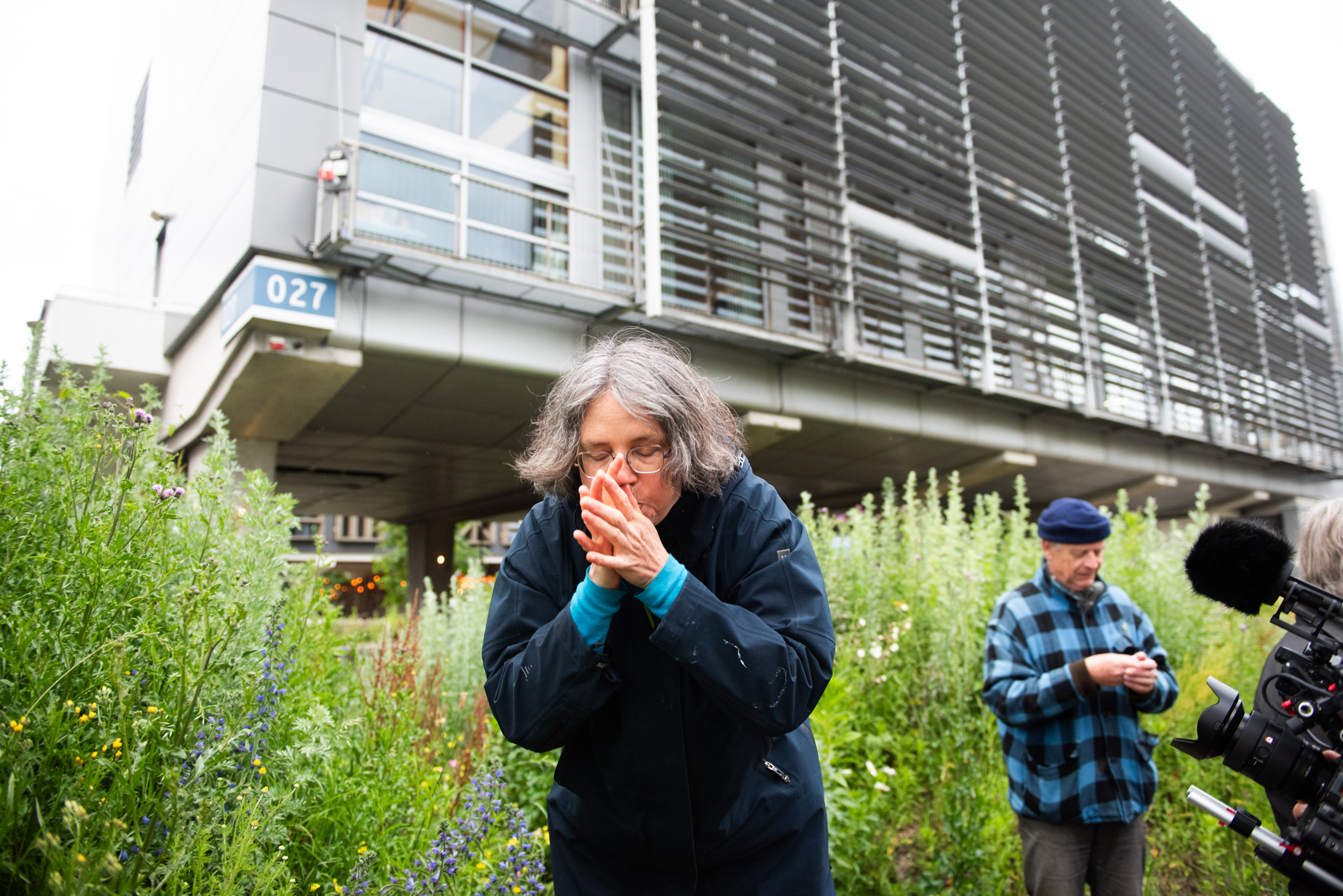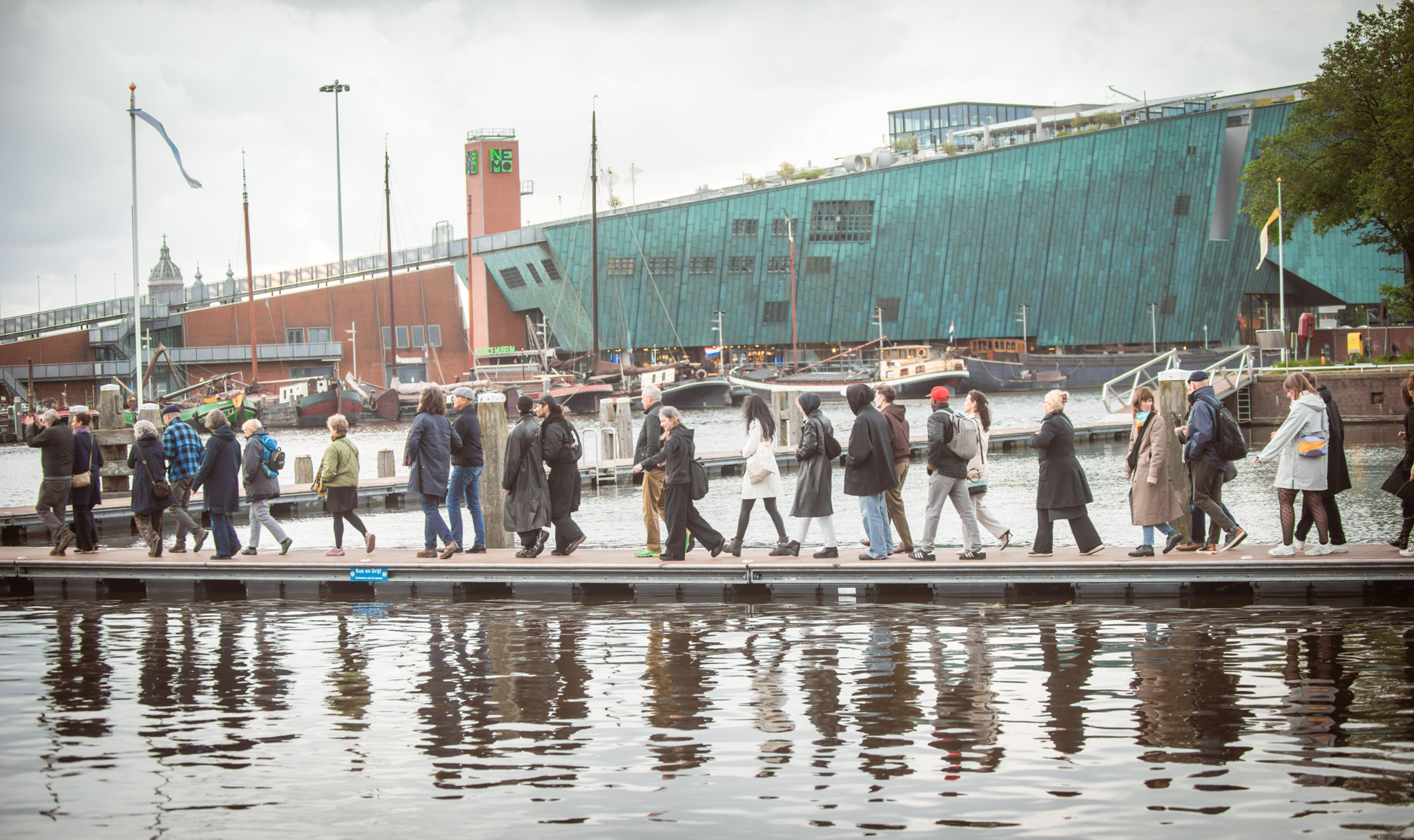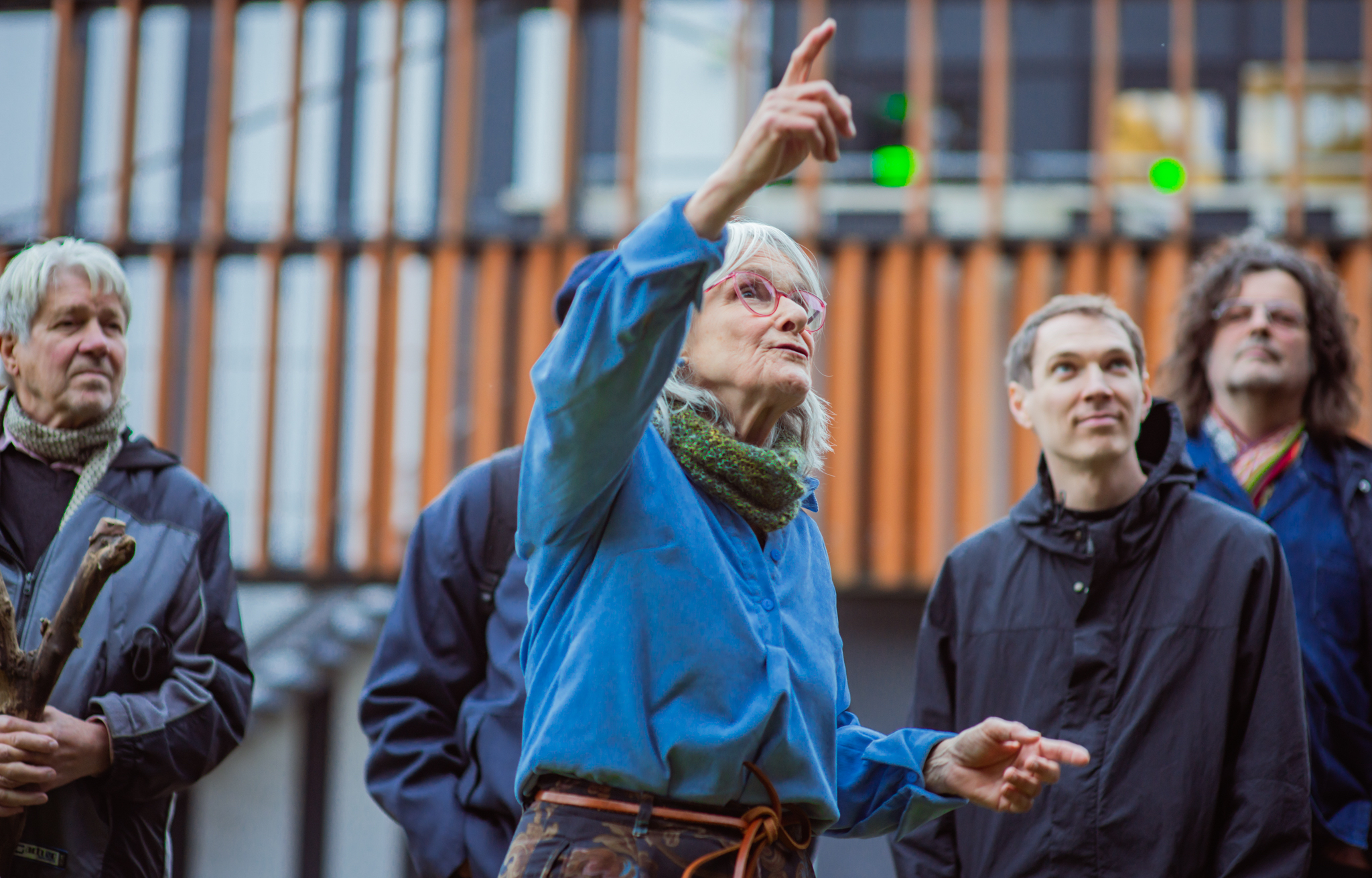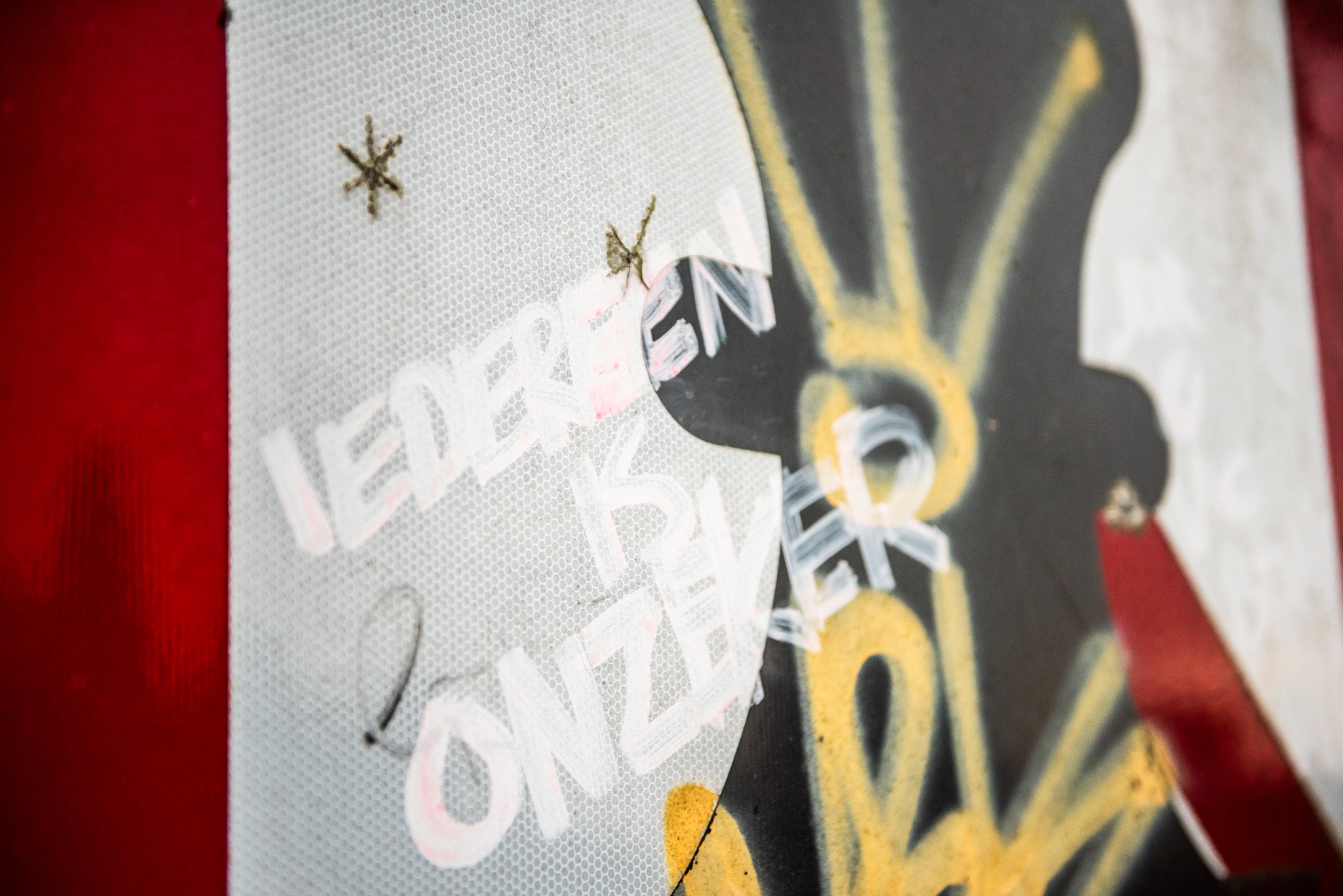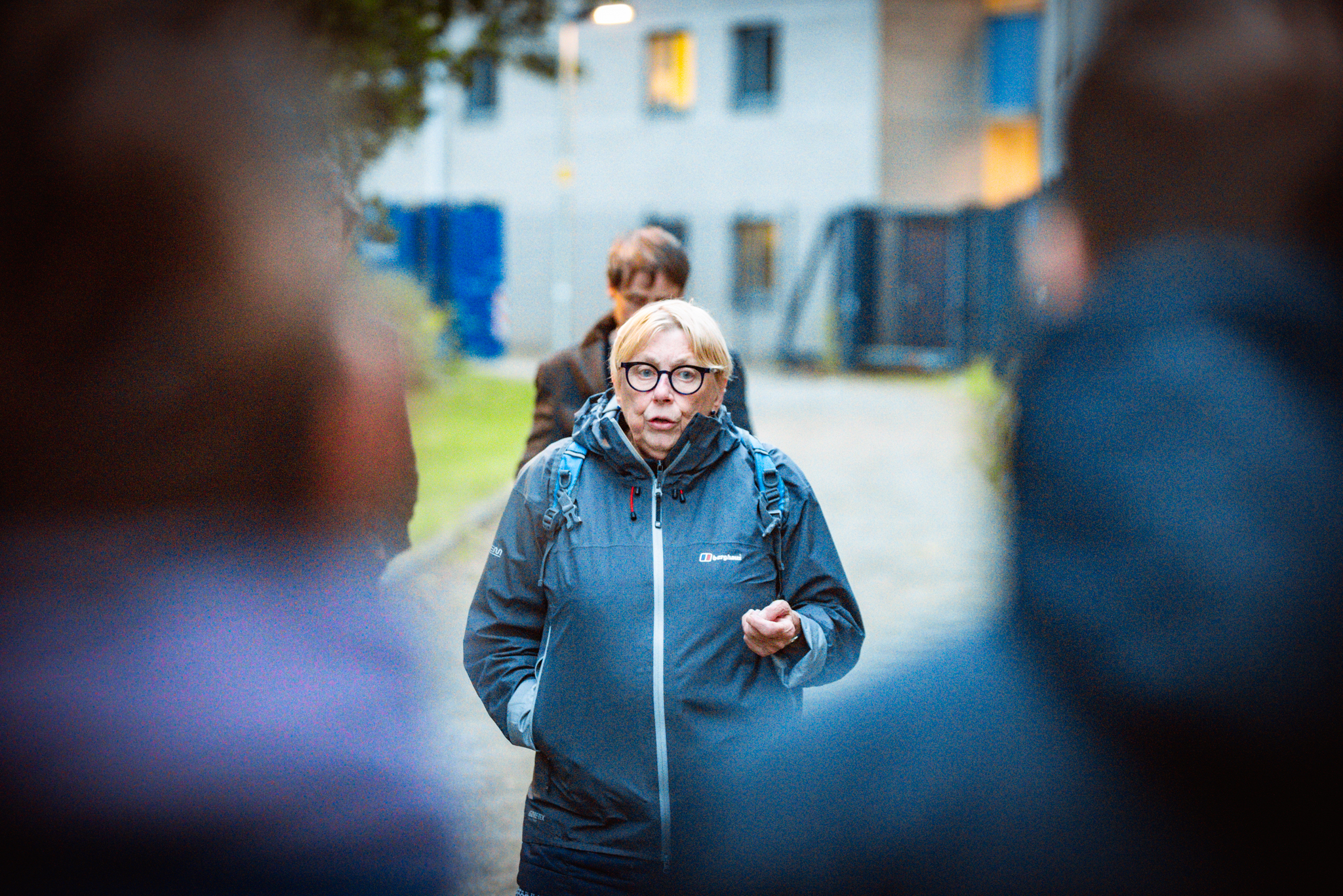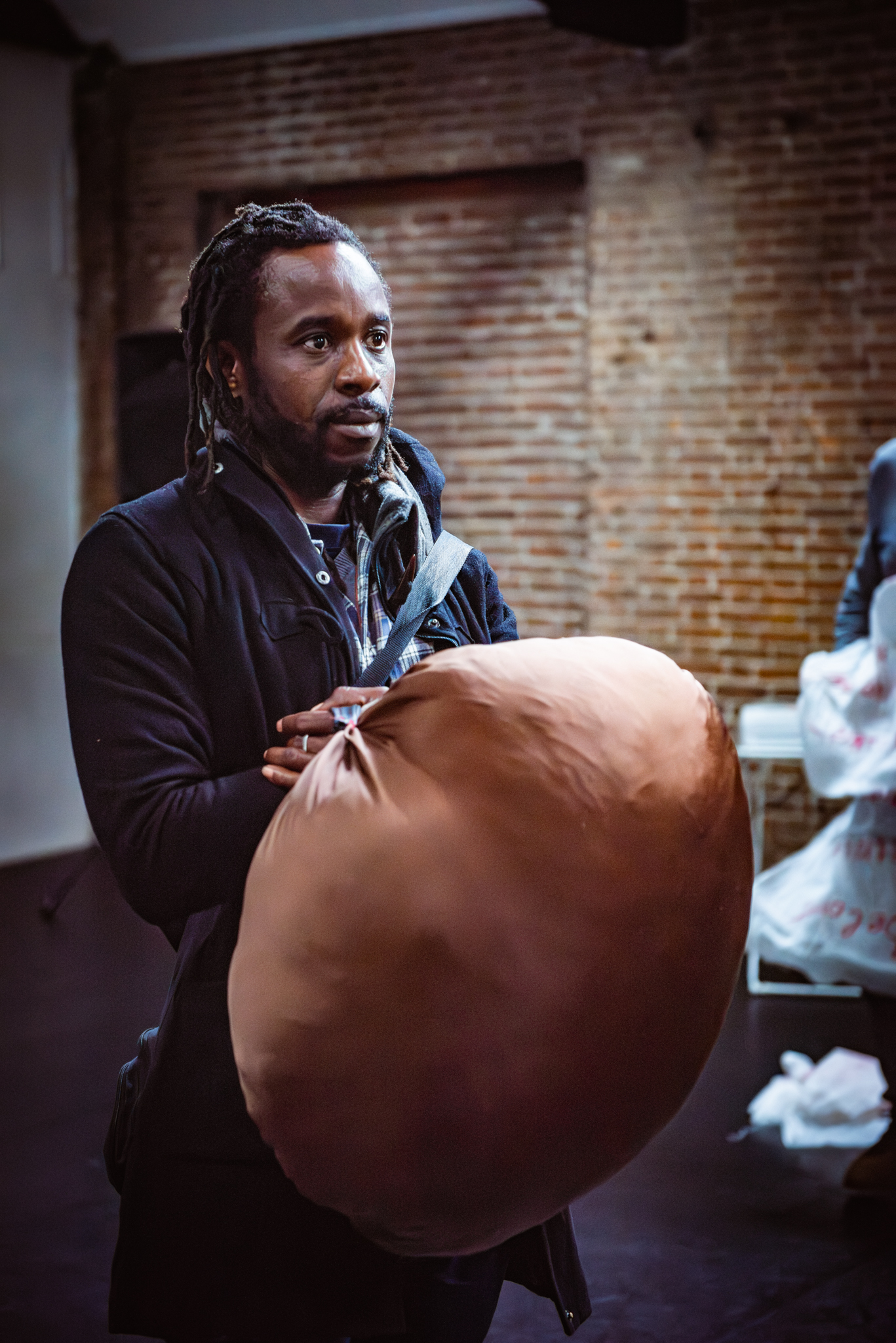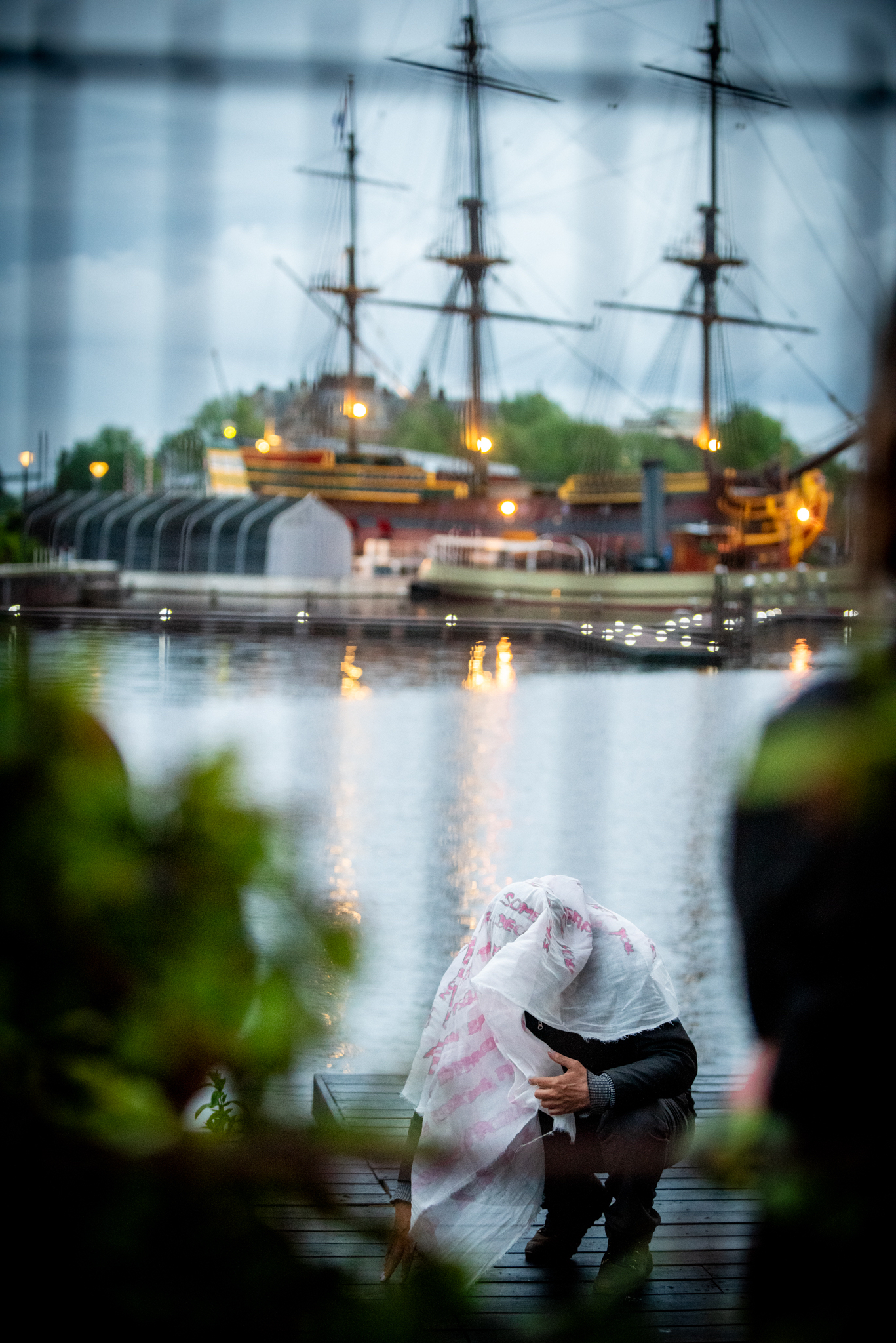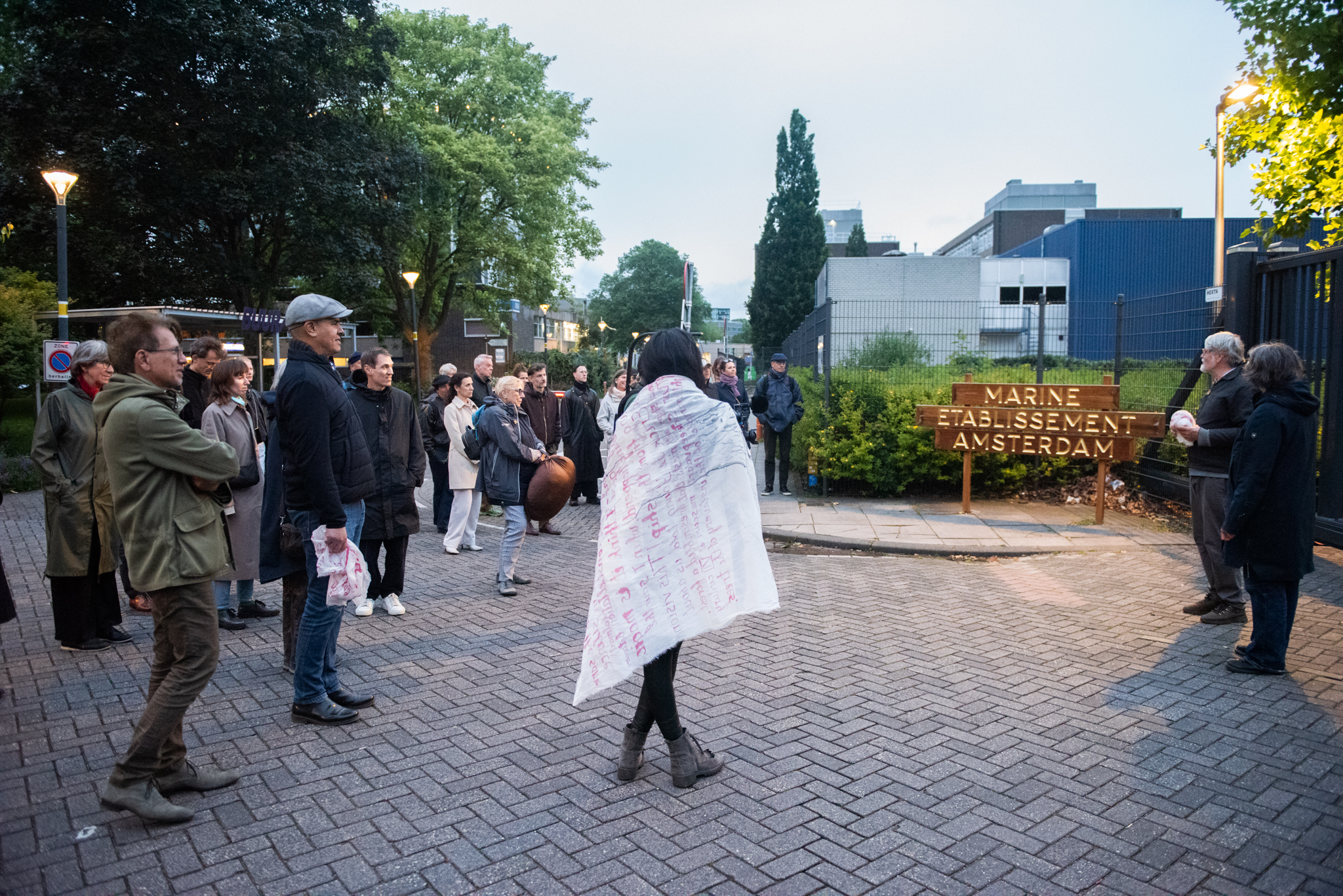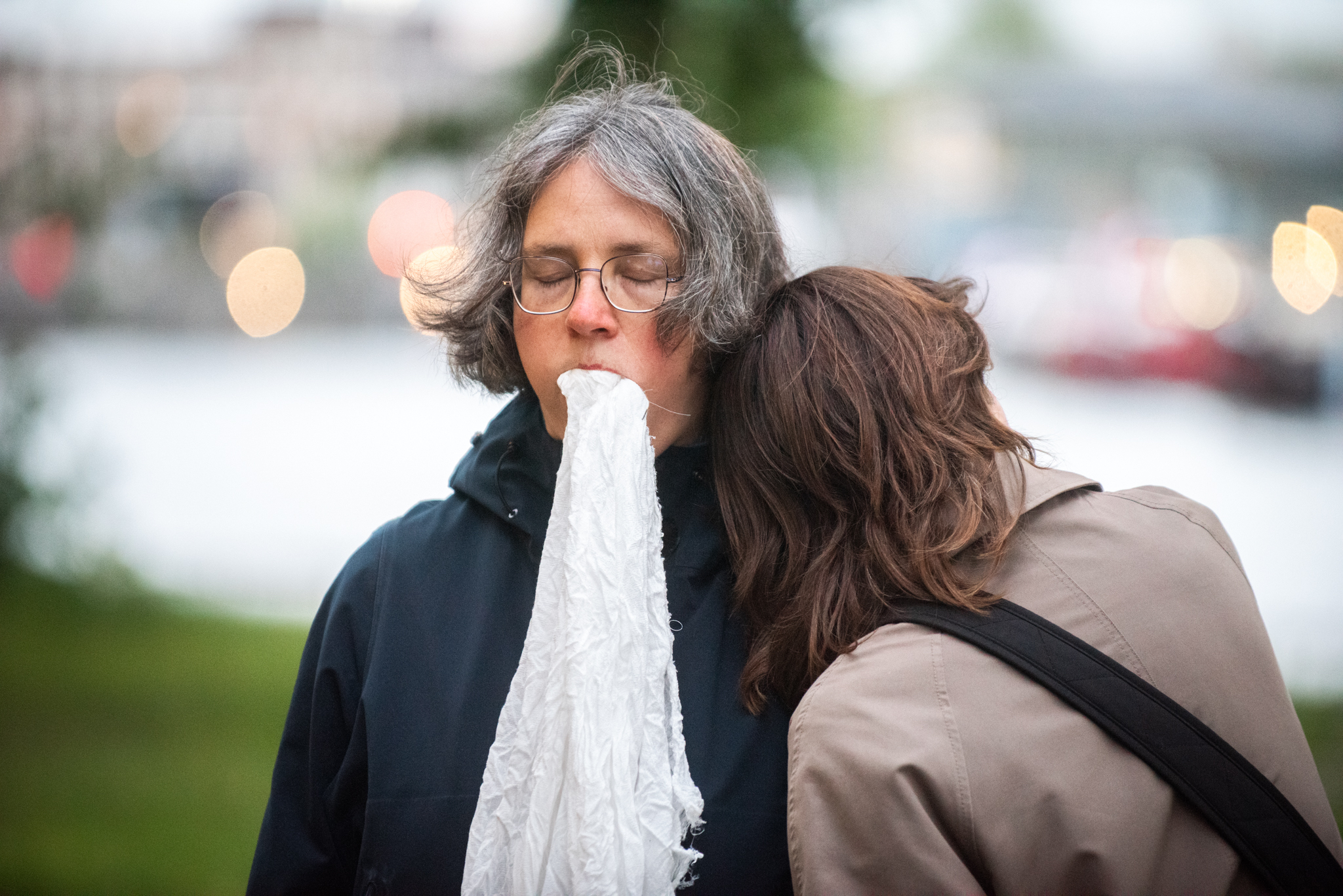Letter from Gluklya and Robert #1
29.05.2024
For this research, Robert and Gluklya, in addition to practicing walking, created a set in Gluklya's studio where they write letters to each other on the pieces of cotton fabric for the blankets to make people feel at home. Including homeless people.
Two empty bodies without organs begin to write letters to each other.
They are tender and patient with each other, taking the time each needs to put their thoughts into their writing.
No interruption is possible during this period.
They do it in silence.
Sometimes they hold their breath as an act of resistance, when they feel the wind or hear the signal or sound outside that might provoke a joy for the vessels.

